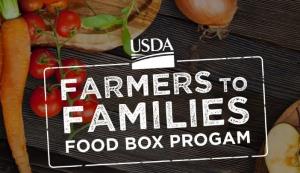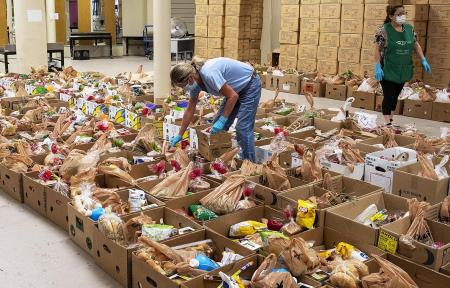Evaluation of Farm to Families Boxes
|
03/17/2021 |
|
 The National Sustainable Agriculture Coalition and the Food Law and Policy Clinic of Harvard Law School recently concluded an evaluation of the Farmers to Families Food Box Program. While acknowledging advantages and benefits, the extensive report incorporated recommendations in the event that USDA continues the program. The National Sustainable Agriculture Coalition and the Food Law and Policy Clinic of Harvard Law School recently concluded an evaluation of the Farmers to Families Food Box Program. While acknowledging advantages and benefits, the extensive report incorporated recommendations in the event that USDA continues the program.
It is acknowledged that millions of boxes of fresh produce were distributed to people in need. The program did assist job retention among distributors and benefited some small and medium-size farms. With experience, Administration of the program that was initiated as an emergency, progressively improved.
The evaluation disclosed failure to support minority and women-owned farms and disproportionately excluded small and mid-sized farm. The program was extremely expensive in relation to the value of produce and food items distributed especially with the early rounds of the program. In certain areas, the program contributed to food waste, ironically the program was established to preserve produce through an efficient chain of distribution.
|
 |
Many observers at the time the program was initiated regarded it as a political boondoggle. Food assistance could have been rendered to the needy more simply by expanding the SNAP and EBT programs. In late 2020, the Farmers to Families Food Box Program was misused for political purposes with pro-Administration flyers inserted into boxes.
Recommendations for any future program include:-
- Distribution of produce-only boxes
- Establish best practice guidance to ensure equity in distribution
- Improve management of the program including a requirement that contractors submit plans to address food waste
- Allow specific tax benefits to encourage donations
- Evaluate bid prices based on reasonable cost
- Ensure that best practices in food distribution and supply chain management are incorporated into the program.
|

|
|
|